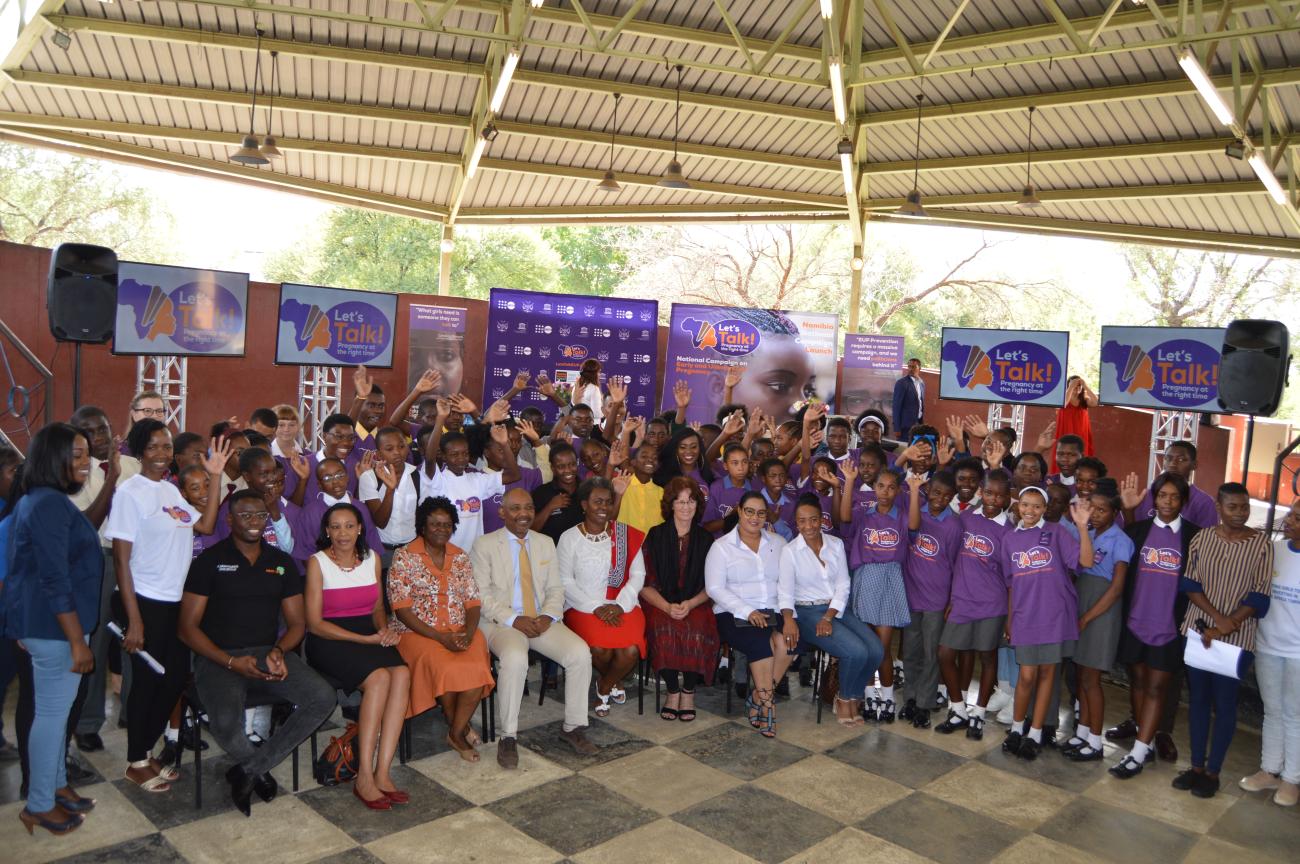‘Let’s Talk’ is a social and behavioural change campaign which seeks to reduce early and unplanned pregnancies across 21 countries in the Eastern and Southern African region.
The Ministry of Education, Arts and Culture (MoEAC) records not less than 1500 pregnancy cases on an annual basis, among school going adolescent girls. “Early and unintended pregnancy has a major negative impact on educational outcomes of adolescents, especially adolescent girls. Adolescents who become pregnant face a host of challenges to remain in school and achieve educational milestones. Unfortunately, this scourge disproportionately affects girls from lower socio – economic communities, thus adding on their burden,” said Hon. Ester Anna Nghipondoka, Deputy Minister of Education, Arts and Culture during her keynote address at the event.
‘Let’s Talk’ campaign tackles Early and Unintended Pregnancy through three thematic areas: 1. Health: Ensuring access to sexual reproductive health services for youth without judgement or discrimination 2. Education: Ensure adolescents receive comprehensive Life Skills Education to equip them to make informed decisions 3. Rights: Empower adolescents and young people to know their rights and make decisions regarding their health and education, allowing them to reach their full potential.
Namibia is a cosignatory to the Implementation of Eastern and Southern Africa (ESA) Commitment, requiring the country to strengthen efforts and accelerate implementation of comprehensive sexuality education (CSE) and sexual reproductive health (SRH) programmes targeting adolescents and empowering them to make informed life decisions. The ‘Let’s Talk’ campaign forms part and parcel of Namibia’s implementation of the requirements under the ESA.
Delivering remarks on behalf of UN Namibia, Resident Coordinator a.i. Ms Rachel Odede, Mr.Djaffar Moussa-Elkadhum, UNESCO Representative stated, “The ‘Let’s Talk’ Campaign on early and unintended pregnancy (EUP) is a call for us to take immediate and collective action to ensure that our girls have knowledge and access to services for informed decisions on when to have sex, negotiating safer sex and choosing when and how many children to have. Only by investing in girls will we be able to create an inclusive society and economy and harness the demographic dividend for Africa and for Namibia in particular.”
Through the support of UN Namibia and the Technical Working Group on the ESA Commitment along with the Ministry of Education, Arts and Culture, the EUP was successfully launched in Namibia, testimony to the joint commitment to taking action to ensure that Quality Education, SDG 4, is a vision that will remain a possibility for every child. Moreover, EUP shows common resolve and collective efforts to impact society at a deeper structural level and in so doing helping to reduce and ultimately eliminate EUP.
In the spirit of the campaign slogan, the launch event called on stakeholders, parents, teachers and learners to create ongoing dialogue to bring about positive social and behaviour change, an invitation to ‘talk.’







